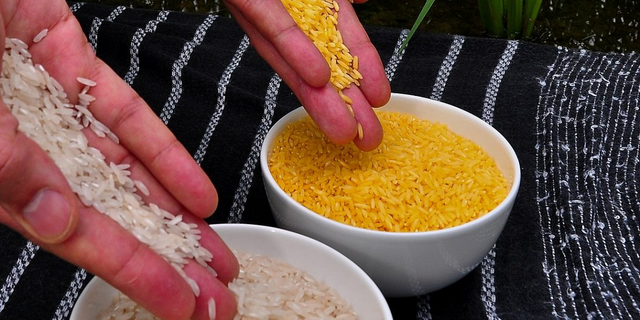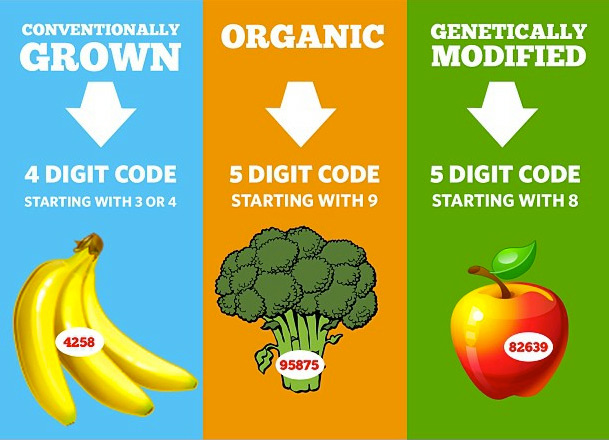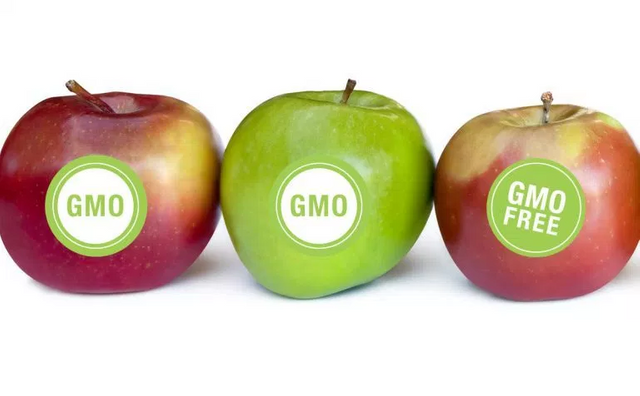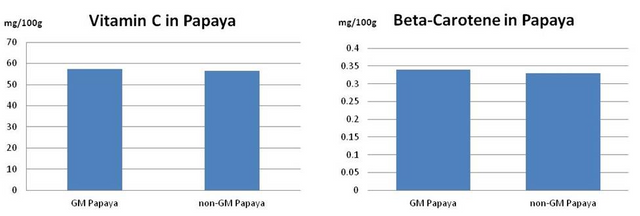GMOs (genetically modified organisms), are novel organisms created in a laboratory using genetic modification/engineering techniques.Non-GMO means non-genetically modified organisms.
In 2000, an article appeared in the journal Science, showing the possibility of creating a genetically modified "golden rice" rich in beta-carotene, and GM tomatoes of the same quality were created in the same year. Beta-carotene is an orange substance that our body absorbs and turns into vitamin A.
Due to the lack of this vitamin, more than 250,000 children in developing countries annually become blind, half of those who are blind during the year die (primarily because of exposure to infections), and gold rice could help to overcome this problem. ervoy modification actually contain more beta-carotene than normal, but not enough to someone to really help. "He would have had to eat kilos!" - opponents of genetic engineering gloated, proving the futility of technology. In 2005, a new modification of golden rice was obtained, in which the amount of beta-carotene was increased by another 23-fold. Now you could eat only 75 grams of rice per day and forget about the lack of vitamin A.

source
On the left is the usual rice, on the right is golden rice, genetically modified
Of course, gold rice alone does not solve all the problems of mankind associated with avitaminosis, but it could save hundreds of thousands of lives. However, in many countries this technology was perceived by the population hostile. In 2013, a group of four hundred activists trampled the fields of golden rice in the Philippines. This story raises a number of ethical issues, not counting the problem of the destruction of someone else's property. Firstly, the trampled rice was not grown for sale - it was experimental crops, the harvest from which in a couple of weeks should have been transferred to the monitoring organizations for the examination. Opponents of GMOs were not only against the introduction of golden rice, but even against its study. And how do we demonstrate the safety of the product, if we can not study it? And anyway, is it possible to convince those who, without any objective data, have already come to the conclusion that the cultivated rice variety is dangerous and does not fit in any way?
The project for the creation of golden rice had both a commercial component and a charitable. For small farmers in developing countries (with an income of less than $ 10,000 per year) technology was to be released with a free license, and farmers had the right to store and plant the seeds they had grown.
Fighting with technology that no one is forcibly forced to use and, moreover, which is intended for free use, is very strange. It is also unclear why, in the view of activists, the mythical danger of GMOs exceeded the real danger of a shortage of vitamin A. The Philippines is one of those countries where the abandonment of this technology inevitably leads to the death of people.
Fortunately, not all experimental crops of golden rice were destroyed, and scientific research was not thrown too far back. It is curious that the people who trampled the fields were mostly non-farmers. Filipino farmers are superstitious and consider the destruction of rice sprouts a bad omen. The attackers were mostly urban residents, neoluddites - opponents of progress. So they are called by analogy with participants in the spontaneous protests of the late 18th and early 19th centuries in England. According to legend, the Luddites received their name in honor of a certain General Ludd, a mythical character, famous for his great victory - the destruction of two stocking machines. The Luddites destroyed machines, machinery, equipment, but they had an excuse that most Neoluddites lack: they saw in these technologies a threat to their own well-being, based on relatively rational economic considerations, such as the loss of jobs and livelihoods.Below is the graph showing vitamin C levels in GM amd non GM papayas.
And now we will talk about a chemical substance (without color and smell) with a consonant name, but which, unlike GMOs, is not very actively discussed in the press. It is called a dihydrogen monoxide, or DGMO. According to WHO, only in 2011 because of this substance, about 359 thousand people were killed around the world. It is used for cooling nuclear reactors, in the chemical industry, in the production of potent narcotic substances, pesticides and poisons. During the First World War, DGMO was used to create chemical weapons, and today DGMO can be found in almost any food and drink.
The basis of the substance is a hydroxyl radical, capable of causing mutations in our DNA. DGMO can be found in the exhausts of some types of transport, and spent by the DGMO tons is merged into rivers, seas and lakes. There are huge corporations interested in selling DGMO. Based on this information, do not you think that DGMO should be banned? Or at least introduce mandatory labeling "contains DGMO" on food and beverages?
In 1997, an American schoolboy named Nathan Zoner made a report on the horrors of the DGMO, similar in content to the text that you read above. Then he asked fifty of his peers whether to ban the chemical compound. Forty-three people said that DGMO should be banned, six were undecided, and only one guessed that the dihydrogen monoxide is H2O, or simply water.
It is possible to circle a finger in this way not only schoolchildren, but also adults, including politicians. For example, a horror story about DGMO came from the representative of the Green Party of New Zealand, Sue Kedgli, who, as a member of parliament, became famous in 2001 for "fully supporting the campaign to ban this toxic compound." In 2007, New Zealand parliamentarian Jackie Dean sent a request Minister of Health Jim Anderton, to find out the position of the expert committee about the ban on this chemical.
The Minister of Health commented on the situation as follows: "Perhaps it described the dihydrogen monoxide as a substance that is colorless, odorless, without taste, which causes the death of thousands of people every year, the abandonment of which for those who become dependent on it means inevitable death," and noted that experts have no intention to propose a ban. The page in Wikipedia, dedicated to Jackie Dean, will retain for a long time the details of this story that are instructive for all politicians.
Is it possible that the GMO got the same misunderstanding, as it was with the DGMO? Maybe some people just did not understand and did not understand what it is? According to a sociological poll published on the website of the Analytical Center of Yuri Levada, the question "Is it true that ordinary plants do not contain genes, and genetically modified plants - contain?" Only 29% of respondents answered the correct answer "no". By curious coincidence, the proportion of people who do not know the correct answer to the question about genes in tomatoes is roughly equal to the proportion of people who consider GMOs to be hazardous to health and subject to prohibition. Coincidence? I do not think so.
Similar results were obtained in the USA. The Department of Agricultural Economics of the University of Oklahoma in January 2015 published a survey data, according to which 82.28% of Americans advocated mandatory labeling of products produced using genetic engineering. During the same survey, 80.44% called for mandatory labeling of products containing DNA! Economist Jason Lask, who presented the survey results, joked that perhaps the label for labeling should look like this: "This product contains deoxyribonucleic acid (DNA). The head of the US Department of Health found that DNA is associated with a wide variety of diseases in animals and humans. Pregnant women have a high risk of transmitting DNA to their children. "

source
If we subtract from 82.28% those 80.44% who want to label even products containing DNA, we will get an approximate estimate of the proportion of Americans who have at least a minimal understanding of biology and at the same time are opponents of GMOs. They make up only 2.23% of the total number of people who believe that GMOs need to be labeled. Here I make only the assumption that there are no such strange people (or jokers?) Who would like to achieve labeling of products containing DNA, but - suddenly - do not have anything against GMOs. On the other hand, the idea of marking "contains DNA" is not so bad for the purposes of education - it will be useful for people to know that it is impossible to avoid the use of DNA in food, because it is in any living organisms.
Many manufacturers of GMOs do not really want to allow the marking of products created by genetic engineering methods. Sometimes it is used as an argument: "Aha! They know that GMOs are harmful! That's why they try to hide everything! "But the reality is much simpler: Almost any warning label with incomprehensible words for the consumer" contains GMOs, "" contains DNA, "or" contains DGMO "will lead to a drop in sales, no matter how dangerous that we are trying to label . This reality is due to the fact that most consumers do not understand what this combination of letters means.
GMOs? Governor of the Moscow region? The brain of a dandelion? The eye of the sea muskrat? The State Museum of Orthopedics?
In 2014, I participated in the "Meanwhile" broadcast of the "Culture" TV channel together with Professor, Doctor of Biological Sciences Mikhail Gelfand. One of our opponents was a producer of "natural" foods, a creator of a farm cooperative and, of course, an enemy of GMOs.Our unsuspecting dirty trick was caught by Gelfand's trap and stated that he did not use monoxide on his farm of dihydrogen. DGMO is water, we vainly tried to find out from our opponent how he relates to the idea that the foodstuffs that his organization supplies to the market will be labeled with an honest sticker "contains DGMO."
In another show, another opponent, represented by an "expert", spoke for almost three minutes about what terrible consequences await all those who will eat "terrible GMOs". Listing his concerns, the speaker said that this is why he is against all sorts of "preservatives" and "dyes." I did not know the "expert" that preservatives with dyes and genetic engineering are completely different things .It is curious that the explanation of this question alone was enough to convince the safety of the GMO taxi driver who was taking me to the transfer.
To explain to a person that he was a victim of a contrived horror story, it is possible in a nutshell, if it is a question of "terrible" water or DNA.In the case of GMOs, the explanation will be somewhat more difficult, and I will try to present it in the following sections of the book.Psychologists know the so-called effect boomerang: when someone is convinced of something, attempts to change his mind often cause the opposite effect.
Man only strengthens in his initial position, having familiarized himself with the arguments of the other side. But I think that the fear of genetic engineering is not the case. Everything indicates that people who are cautiously concerned with this biotechnology are not well informed and are inclined to make a naturalistic mistake (thinking that everything is natural is useful, and everything artificial is harmful.

Text References:
- https://tommyssuperfoods.com/organic-foods-non-gmo/
- https://gmoanswers.com/ask/can-i-see-chart-nutrition-value-gmo-vs-non-gmo-fruits-and-vegetables
- https://en.wikipedia.org/wiki/Genetically_modified_rice
- https://www.skepticalraptor.com/skepticalraptorblog.php/gmo-vs-non-gmo-foods-genetic-modification/
- http://non-gmoreport.com/what-is-non-gmo-what-are-genetically-modified-foods/
Support @steemstem and the #steemstem
project - curating and supporting quality STEM
related content on Steemit



What a very nice writeup.....alot of people have negavative mind set about GMOS due to the fact that some genetically made foods by go through some processes which might lead to exposure to some chemicals amd this might be harmful...safe methods should be employed in other to ameliorate and alleviate such fear in people.
Downvoting a post can decrease pending rewards and make it less visible. Common reasons:
Submit
It could be used better thou and i like your examples :)
GMO´s enabled the use of glyphosate by inducing resistance.
Now much of the worlds crops and animals are full of glyphosate.
Glyphosate is not the GMO, but the GMO enables usage of this leathal chemical. Monsanto, the creator of round up ready crops(glyphosate resistance) makes it impossible to research and publish on the matter.
I think this is a real health hazard giving rise to many modern type disease. I encourage everyone to check out the work of Stephanie seneff from M.I.T linking it to numerous diseases in this publication series.
https://www.degruyter.com/view/j/intox.2013.6.issue-4/intox-2013-0026/intox-2013-0026.xml
This is nr 2, 1-5 is all available free, great work.
Many GMO´s are simply glyphosate resistance, do not eat them or the animals that eat them!
Vegan & pesticide free is the way to live.
Nice article, there are many possibilities within GM tech
Downvoting a post can decrease pending rewards and make it less visible. Common reasons:
Submit